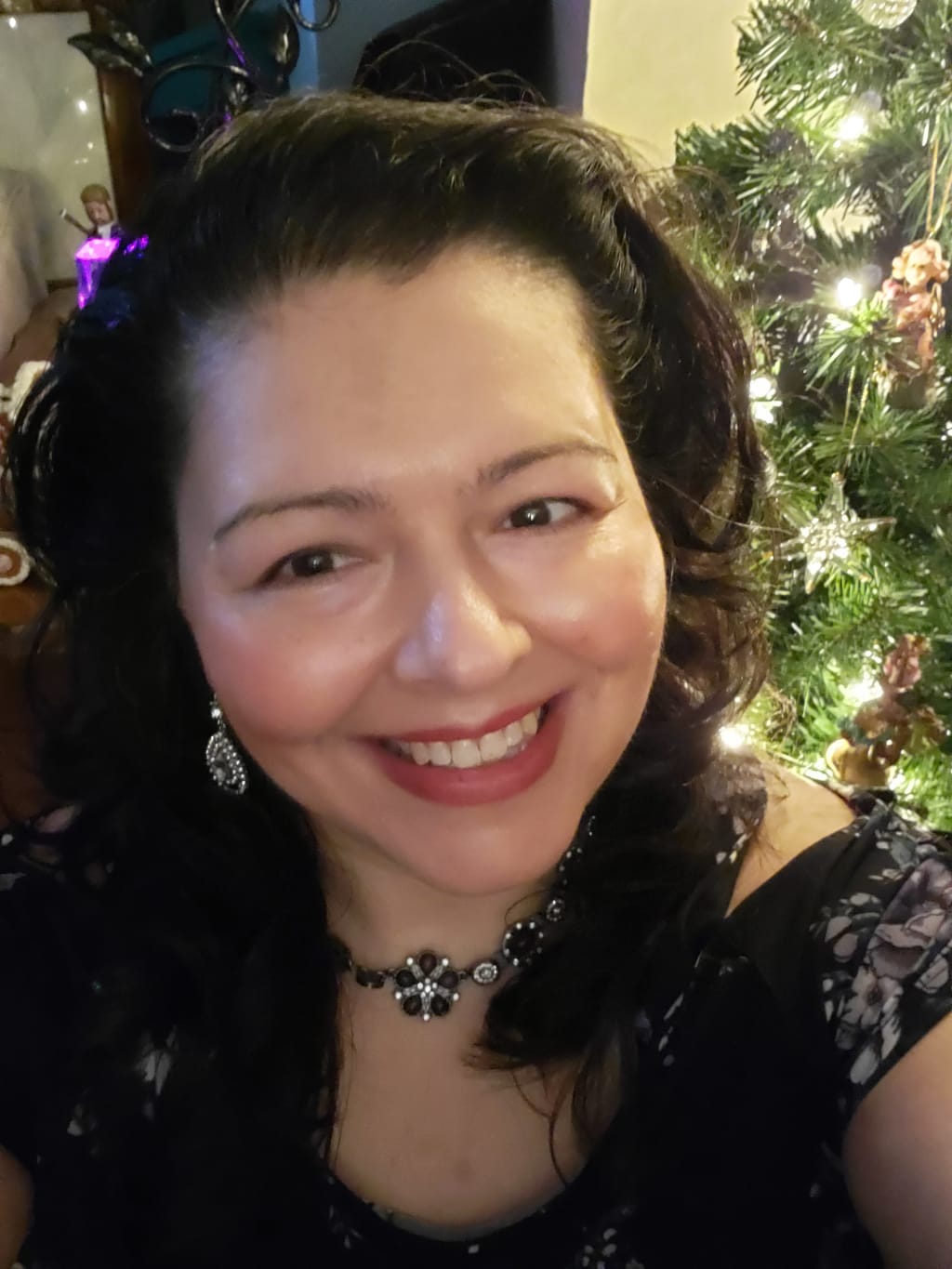Stripped to the Core
Finding My True, Authentic Self

My thin, canvas shoes slapped against the freezing pavement, as I ran down an unfamiliar road, during the black of night. I could see my breath in front of my face, and the icy air hurt my chest. Dressed in a t-shirt and shorts, one thought pervaded. If I don’t find the right road during the next five minutes, I’m going to lie down in that ditch and die.
It was the week of Thanksgiving, I was fourteen years old, and I was desperate. I had been kept out of school for days, confined to my bedroom, alone in the basement. My clothes were taken so I couldn’t leave the house, and I was given an old ripped shirt to wear. Withholding food was a regular punishment in our home, and that week was no exception. But that wasn’t the worst of it.
Just days before, I’d been pushed down, dragged along a concrete floor, and my mother forcibly stripped me. At the same time, my grandmother repeatedly hit me in the head, yelling, “God will never love a sinner like you!” I passed out, and a large bucket of cold water was dumped on my face.
So when I found a summer t-shirt, shorts, and canvas shoes I’d stashed away from my summer job, I quickly put them on—and I ran. I had recently met a lady at church who told me if I ever needed somewhere to go, I was welcome to stay with her until I sorted things out. The problem was—I couldn’t remember how to get to her house, and it was pitch black outside.
In the days before Google Maps and before cell phones even existed, if someone was being physically abused, people just looked the other way. They pretended it didn’t exist or were in denial. Or they justified it in their minds. I must have been a bad kid for them to beat the crap out of me.
However, the reality was that my mother and grandmother were English and strict Anglican—and my skin color was dark. My grandmother told me it was her job to “beat the East Indian out of me”. I was the mistake my mother made, that would never go away.
Although my childhood was at times horrific, I tried to stay positive. Months after that Thanksgiving, I was finally put into foster care. I had two great foster homes, before I left for post-secondary education. However, I went through years and years of therapy to deal with trauma.
To some people, therapy doesn’t make sense. But ask yourself this question. If you lived in an abusive situation for 5,000 days of your life, were brainwashed into thinking you had no right to even take up space on the planet, would you need therapy? Now think of it in terms of formative years—and if you’d never known anything different.
If you lived in an abusive situation for 5,000 days of your life, were brainwashed into thinking you had no right to even take up space on the planet, would you need therapy?
I worked hard to confront and overcome the obstacles in my life. I finished a Masters Degree, and eventually became a Children’s Therapist at a counseling clinic. I got married, and had three children. I recorded an album as a singer/songwriter, and my music was on stations across Canada and the US. However, then the ‘other shoe dropped’.
I was making a right turn on a green light, when a young driver ran the red light, speeding, and hit my driver’s door.
“Oh my God! Oh my God!” I was screaming as the steering wheel was wrenched out of my hands. My head was hit twice, once on impact, and a second time as it rebounded off the frame of the car.
I was so confused, I thought my kids were in the car at the time. My youngest was a newborn at the time, and I remember people looking for the baby at the scene. Then I’d recall they were at home. Alternately, I would become frantic again, convinced they had been seriously injured or killed in the accident. This continued for weeks.
Over the following months, I lived in a nightmare. A literal nightmare, as I couldn’t tell the difference between reality and fiction. I was dreaming when I was awake, and my husband was constantly being awakened by my screams at night—I was screaming in my sleep.
The physical pain was so bad I was getting xylocaine injections into my head, neck, and back regularly, just to take the edge off the pain. The shots hurt like hell, but my day-to-day pain, the feeling of a hot knife plunging into my skull, was more intense.
Light, noise, and seeing movement were difficult to deal with. Think of a never-ending migraine where you need a quiet, dark room. Then factor in three children, seven and under. I was not coping well at all. I needed a life-line.
Things continued to deteriorate until the physical pain became so crippling that I found myself in hospital again. This time, a dear friend, Jeanette, advocated for me, and eventually I was accepted into a brain injury rehabilitation program. As a medical professional and close family friend, she had insight into what was occurring.
There’s a certain amount of denial and disbelief that people experience when someone ‘looks normal’, and they find out otherwise. I think that is one issue that affected my situation. I ‘presented’ as ‘normal’ in general, so my care was overlooked.
There’s a certain amount of denial and disbelief that people experience when someone ‘looks normal’...
However, the accumulation of having encephalitis (a virus causing inflammation of the brain) with seizures as a child, years of being repeatedly hit on the head at home both before and after that illness, and being thrown off a horse and knocked unconscious—well, the impact my car accident had on my brain after that was the last straw.
Back then, brain injury awareness wasn’t the same as it is today. Now studies have been done in the realm of sports injuries that show how impacts to the brain accumulate. Because my injury is ‘invisible’ doesn’t mean it’s non-existent.
Because my injury is ‘invisible’ doesn’t mean it’s non-existent.
After my accident I had impediments I needed to overcome. For example, I spent six months walking backwards with proper cross-patterning in a pool. This was because I would occasionally trip while walking forward, as my alternating arms and legs while walking weren’t always in sync.
I also had a few issues with my speech. I would sometimes repeat the last word of my sentence uncontrollably. Other times I’d stop in the middle of a sentence and couldn’t continue talking or would need to go to sleep at that moment. The worst was saying the exact opposite of what I was trying to communicate. You can imagine how that turned out—it was like social suicide.
I still struggle with these issues if I’m really tired. I have to concentrate and mentally note which foot goes in front of the other. I stumble over my speech and repeat some syllables when I’m tired as well.
I’ve had to deal with impairment of things like multitasking, and I don’t mean in a ‘standard’ way. There was a time I couldn’t get my spoon to my mouth if the radio was on. If the lights were buzzing I couldn’t hold a conversation. I still live in the dark with blackout curtains and a dim light on to help me recuperate more quickly from overstimulation, and so I can be more functional during the day.
As time went on and I started to face the reality of my situation, the losses started to accumulate. My job and my career were first to go, as I realized I could no longer work as a Children’s Therapist. I had lost my level of proficiency at piano and guitar. With piano, it was because of the multitasking involved playing two different lines, hands together. With guitar, it was due to physical injury. Many of my basic abilities were compromised, which was destroying my self-esteem.
However, that wasn’t the end of my loss. When I was away in rehabilitation, I found out I would never be able to live with my children again. They would grow up without me in the home. That was the most devastating loss, and it put me in a deep depression for two years.
Who are we when everything is stripped away?
Take away our abilities, roles, work, social status, finances—all the things we use to define ourselves—and what is left? This was a question that plagued me for years, as one layer, then another was stripped off me. What part of me remained?
During that stripping down, I was emotionally in fetal position. Those were dark years, wishing the world would swallow me so I was no more, so no one would remember me. I simply wanted to erase my existence. I’d lost all sense of self-worth, and I didn’t want to be a burden to others. The song by Sarah McLachlan, “Fallen”, replayed unceasingly in my head.
My friend, Danielle, approached me during that time, because I had withdrawn inside myself. I had cut off contact with most friends—I didn’t want them to see me the way I was now. I told her I didn’t understand why she still wanted to be my friend, when I couldn’t do anything for her. She told me, “It’s not what you can do for me that is important. It’s what you bring to the relationship that is important.”
Does our value diminish when we’re no longer able to do things?
This is a question we will all eventually face later in life, or earlier, as in my own situation. Even when I felt I had nothing to offer, during the lowest time in my life, I was reminded that it’s the state of ‘being me’, not ‘doing things’ that’s important. It’s the essence of who we are as people, not our capabilities that gives us value.
In a society that emphasizes ‘go, go, go’ it can be a hard blow to our self-esteem when we’re unable to participate in that way. However, our self-worth isn’t dependent on doing. It’s rooted in our being, our humanity. That’s not to say that we shouldn’t participate when we are capable. But when we are unable to participate, it doesn’t mean we no longer have value.
When we feel trapped inside ourselves, due to declining capability, what can we do to restore some semblance of normalcy?
Several years ago, I discovered my passion for writing. Before that, I didn’t think I’d ever be passionate about anything again, as I’d lost my passions due to diminished capability. However, I was able to find something to participate in that made life more meaningful for me.
Finding a passion was instrumental in my rehab, and has propelled me forward in my journey towards recovery. My writing is something that brings enjoyment and fulfilment, and is a skill that I’m gradually improving at. Those are three elements of a well-rounded passion.
Over the last several years, I’ve written three full length novels, and several children’s stories on mental health and societal issues. The novel-writing is therapeutic and enjoyable. The illustrated children’s books (on issues such as bullying, skin color, coping with anxiety, losing a loved one, and living in foster care), bring a lot of meaning to my life, since I used to be a Children’s Therapist. I now have an outlet to channel those skills through, even though I’m unable to continue in private practice.
I also look at the character traits that have developed in me as a result of my life experience. My compassion and understanding has grown for others, I’m less judgmental, my frustration tolerance has increased, and my patience has improved exponentially. Those are just a few of my character traits that have grown, changing my life perspective enormously. Sometimes a shift in life perspective can redefine who we are.
Sometimes a shift in life perspective can redefine who we are.
If everything was gone in an instant, and only the core part of us remained, what would that innermost part look like? Would we find substance or emptiness? It’s something to ponder about. The reason being—it’s only when we strip the superficial layers off that we can find our true, authentic selves.
About the Creator
Anjula Evans
After authoring three novels and several illustrated children's books, Anjula continues to write at full tilt! She is passionate about her writing, which she does on a daily basis, and always aspires to improve her craft.






Comments
There are no comments for this story
Be the first to respond and start the conversation.